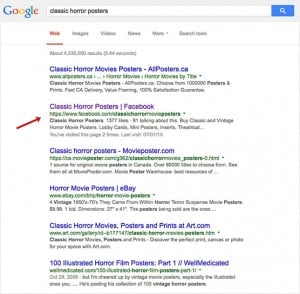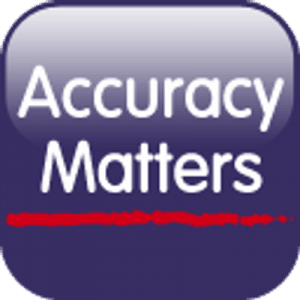Repair your Online Results by Optimizing your Facebook Reputation
In Part I of our “Optimize Facebook” series we discussed the importance of increasing the relevancy of a Facebook page, in order to repair your Facebook Reputation. You now know that Facebook pages must have high levels of relevancy to who your are, or to what your business is all about, so that Facebook has a fair chance to rise above negative press. In this article we will take the matter of increasing relevancy a step further by focusing on the importance of accuracy when working to lift a Facebook page above a negative search query.
Check For Accuracy on Facebook
 Facebook pages are often established with privacy in mind, but Google doesn’t care about privacy. Google is hungry for information, new information, accurate information, and some believe that when accuracy cannot be determined, then they’ll take the most provocative or scandalous content (see “Google’s Humiliation Algorithm” video) and prioritize it. As we try to protect our privacy and our online reputations, Google decides where to place a search result based the accuracy of a page’s information, as verified by less visible, and for that matter less credible online sources (yes, unfortunately it’s true).
Facebook pages are often established with privacy in mind, but Google doesn’t care about privacy. Google is hungry for information, new information, accurate information, and some believe that when accuracy cannot be determined, then they’ll take the most provocative or scandalous content (see “Google’s Humiliation Algorithm” video) and prioritize it. As we try to protect our privacy and our online reputations, Google decides where to place a search result based the accuracy of a page’s information, as verified by less visible, and for that matter less credible online sources (yes, unfortunately it’s true).
So if you ever hired an ambitious computer wizard who promised to save your online reputation with random online profiles that lack factual substance–that’s a problem that may be keeping your Facebook profile from rising to the highest positions in Google Search.
If, in the name of privacy, you yourself have elected to list what may be considered inaccurate information on your Facebook page, it’s important that the fictitious information doesn’t contradict any of the information that can be found in other data sources indexed in Google Search.
Mismatches in business locations, universities attended, employment histories, etc.,. can cause a Facebook page to stall instead of rise in Google Search.
Dealing With Inaccuracies on Facebook
You’re going to have to start eliminating discrepancies between what’s listed in online directories and what’s recorded on your Facebook page if you want your Facebook page to budge faster. This effort should give your Facebook page the credibility it needs to easily rise above a negative search result.
Addressing Privacy Concerns
If you’re worried about maintaining your privacy, then use the information that’s already floating around on the Internet under your personal or business name. If you typically use inaccurate personal information online, it is not like useful inaccurate information isn’t already out there–but when you have a reputation issue going on, it’s always wise to streamline the information so that it’s all consistent–especially when it comes to Facebook. Make sure the data on your Facebook page and indexed in Google Search matches and doesn’t contradict what Google has already gathered about the business or the identity of the person in a negative search result.
Focus on Adjusting Facebook Dates First
A Facebook page’s failure to rise in Google Search can be the result of inaccurate company founding dates, work history dates, birth dates and college graduation dates. All Facebook dates should match those listed in public business and personal information directories. Compare key dates listed on websites such as LinkedIn or Fortune 500 registries, for example. Focusing on matching dates is an easy way to help your Facebook page rise much faster in Google Search.
 Conclusion
Conclusion
Accuracy and relevancy matters to Google. Stay mindful of how the facts have already been presented in a public arena–and make sure your Facebook page data is accurate in light of other existing data. We hope these suggestions result in your Facebook swiftly rising up and over your negative search result.
Note: It may take time to make these recommended adjustments. Online data discrepancy research is a lot of work. You have our support. If you’re short on time, consider assigning the task to one of our specialists or recruit a capable in-house staff member.
 Page1.me
Page1.me